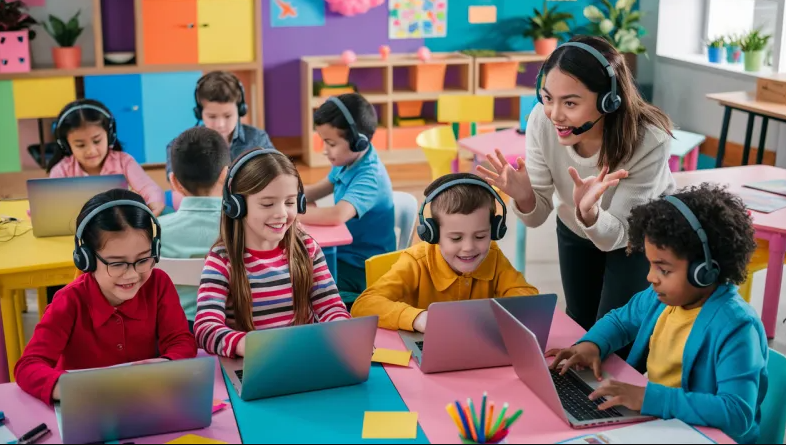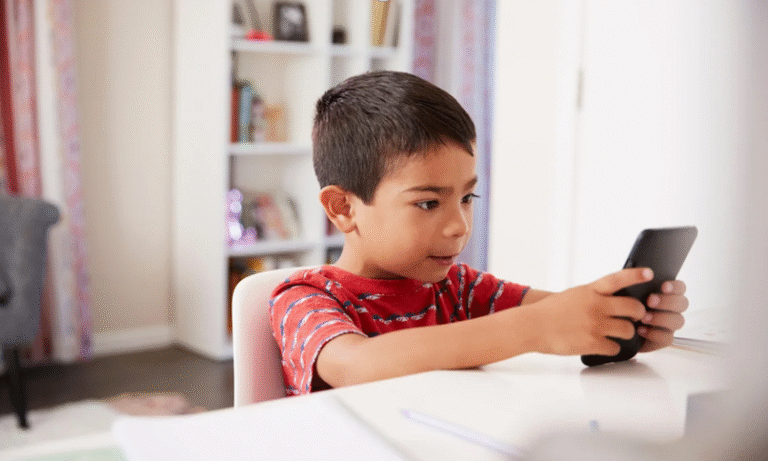5 Best-Rated Kids Online Learning Programs in 2025
In 2025, the way children learn has completely transformed. Between after-school activities, screen time battles, and a growing appetite for hands-on learning, parents everywhere are on the hunt for online platforms that don’t just educate but truly engage.
Luckily, a new wave of digital learning programs has stepped up. These aren’t your typical video lessons and worksheets. Today’s top kids learning programs combine gamification, creativity, real-time interaction, and adaptive learning paths to meet kids where they are both academically and emotionally.
These innovative platforms do more than fill gaps, they spark curiosity and build lifelong learning habits. From creative writing and coding to math adventures and storytelling clubs, kids now have access to rich, personalized experiences that feel more like play than school. It’s education that adapts to the child, not the other way around.
Best-Rated Kids Learning Programs to Try This Year
We’ve curated five of the best-rated platforms that parents and educators are raving about in 2025. Whether your child is into coding, storytelling, science experiments, or reading, there’s something here for every little learner.
1.FunFox – Creative Writing & Communication Skills
Best For: Ages 6–14 | Budding storytellers, deep thinkers, and the quiet kids who just need the right space to open up and shine
FunFox has become a go-to platform for parents who want to help their kids develop writing and communication skills in a playful, confidence-boosting environment. The platform focuses on creative writing, storytelling, and public speaking, using prompts, group sessions, and instructor feedback that make kids feel seen and heard.
Each session feels more like a club than a class, helping even the shyest children open up. Kids don’t just learn how to write; they learn how to think, express, and connect.
Curious if a creative space like this could help your child open up and express themselves? Exploring a trial session can be a great first step to see what resonates.
2. Tynker – Coding for Kids
Best For: Ages 5–17 | Future programmers, game designers, tech tinkerers
Tynker introduces children to coding in a playful, game-like environment that feels more like solving puzzles than learning syntax. With pathways in block coding, Python, JavaScript, and beginner-friendly AI, it adapts to each child’s pace and curiosity.
Whether they’re building animations, designing mini-games, or exploring how apps work, kids gain real-world digital skills in a hands-on way. Interactive lessons are paired with creative challenges that spark imagination and hold attention, especially for those already drawn to tech and storytelling through code.
Themes like space exploration and game design keep kids engaged, especially with projects inspired by NASA and Minecraft-style gameplay.
3. Outschool – Live Classes for Every Interest
Best For: Ages 3–18 | Explorers, hobbyists, and curious minds
Outschool offers a huge range of live, teacher-led classes for ages 3–18, covering everything from phonics and baking to coding, art, and history through Minecraft. Whether your child wants to dive into a new hobby or go deeper into a subject they already love, there’s likely a class that speaks to their interests.
With flexible schedules and drop-in options, it’s a great way for kids to explore new ideas without pressure, and for parents to support learning beyond the classroom.
4. Khan Academy Kids – Free Foundational Learning
Best For: Ages 2–8 | Preschoolers, early readers, and first-time learners
Why it’s loved: Khan Academy Kids offers a fun, free, and thoughtfully designed introduction to core subjects like reading, math, and social-emotional learning. Its intuitive layout and cheerful characters make it ideal for young learners who are just starting their educational journey.
The lessons grow with your child, with plenty of activities to reinforce foundational concepts through stories, songs, and games, all aligned with early learning standards in many countries.
5. ABCmouse – A Well-Rounded Learning Platform for Early Years
Best For: Ages 2–8 | Kids who enjoy structure and variety across subjects
ABCmouse covers core subjects like math, reading, science, and art through a library of interactive activities. Designed for early learners, it helps build foundational skills at a steady pace.
The app uses a level-based approach that adjusts as children progress, with gentle encouragement through visuals and rewards. For families looking for a structured, all-in-one platform, it’s a helpful option to support at-home learning.
Highlight: Offers offline access and works across devices, making it easy to fit into different routines.
See also: How to Get Rid of Bedbugs in Apartments
What Makes These Programs Stand Out?
The top kids learning programs in 2025 are not just tools for academic reinforcement; they’re experiences that make learning feel meaningful, exciting, and personalized. Unlike older, one-size-fits-all platforms, today’s leading options are built around:
- Interactive learning: Lessons feel like games, stories, or social activities, making it easier for kids to retain what they learn.
- Real-time feedback: Kids receive encouragement and suggestions that help them improve continuously, without feeling judged.
- Holistic development: These platforms integrate soft skills like communication, collaboration, emotional regulation, and critical thinking.
- Adaptive technology: Programs assess a child’s strengths and challenges, adjusting the pace and content to fit their unique needs.
What truly stands out is the child-first approach. Whether it’s helping a shy child find their voice through creative writing or giving a curious tinkerer their first taste of AI coding, these platforms nurture individual growth at every step. They don’t just teach, they empower.
Choosing the Right Fit for Your Child
With so many choices, how do you decide which platform is right? Start by identifying your child’s learning style, interests, and attention span. Then match that with what each platform offers.
For example:
- If your child is imaginative but hesitant to speak up in class, a storytelling-focused program like FunFox can help them gain confidence.
- For a tech-savvy child who loves games, Tynker introduces coding in a playful, highly visual way.
- And if you’re looking for something foundational and screen-friendly for preschoolers, Khan Academy Kids or ABCmouse both offer gentle introductions to core skills through stories, songs, and interactive play.
The top kids learning programs often offer free trials, which is a great way to test the waters. Sit in on a session, see how your child responds, and don’t be afraid to try multiple options before settling. The goal isn’t just finding the most popular app; it’s finding what clicks with your child.
Also, remember that your child’s interests will evolve. What excites them at age 7 might not engage them at 10. Look for programs that grow with your child or offer a diverse enough experience to adapt along the way.
Conclusion
The best learning doesn’t always happen in a classroom. It happens when kids feel curious, confident, and excited to explore. The top online learning programs of 2025 are meeting kids at that exact intersection, where fun meets focus, and growth feels natural.
Whether your child loves writing stories, solving puzzles, or experimenting with new skills, the right platform can make a big difference. These programs aren’t just about screen time; they’re about meaningful engagement, building confidence, and encouraging lifelong learning habits.
From creative writing to coding to foundational literacy, there’s something out there for every kind of learner. It’s all about finding the one that sparks your child’s interest, and watching them take off from there.





